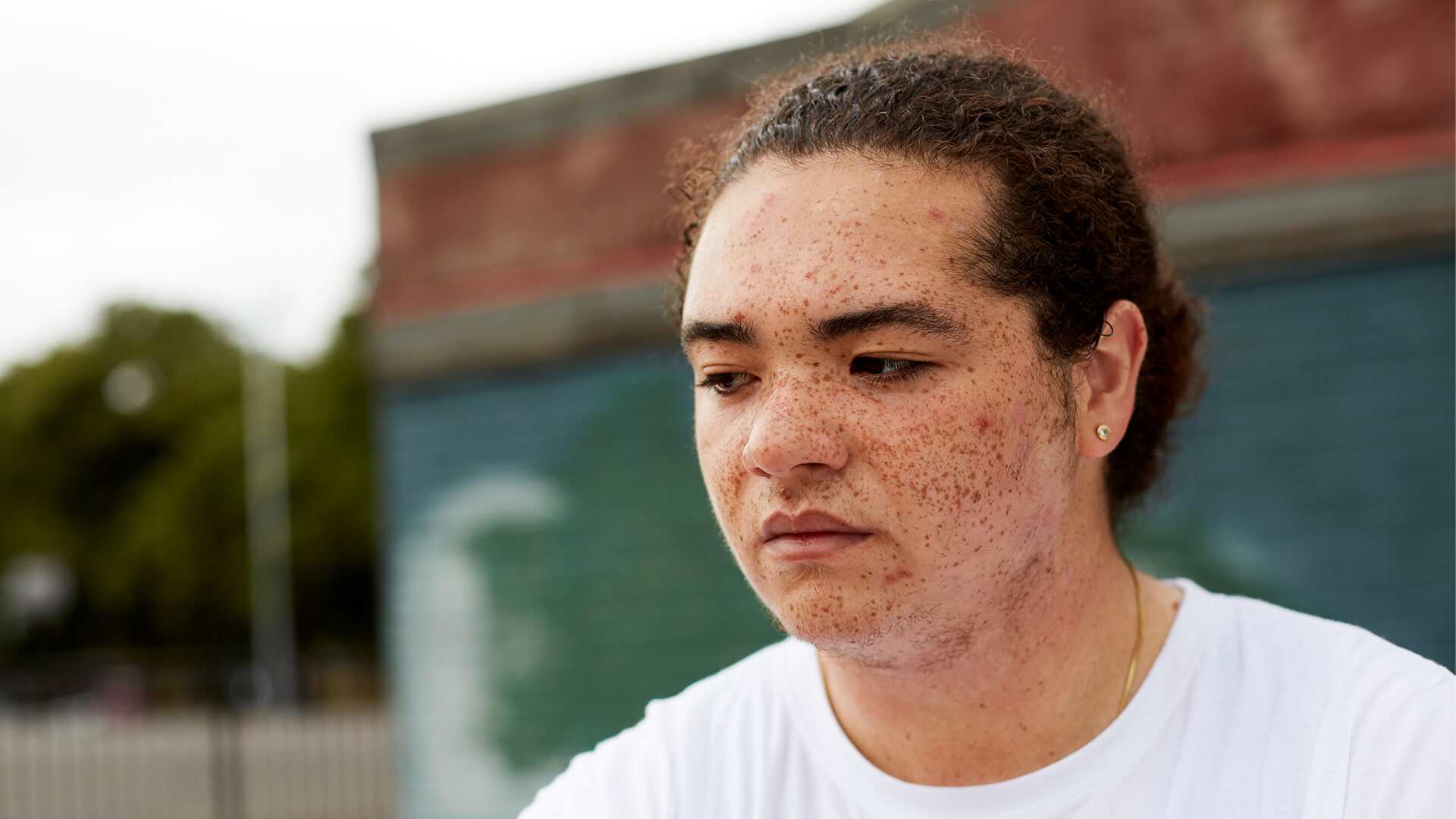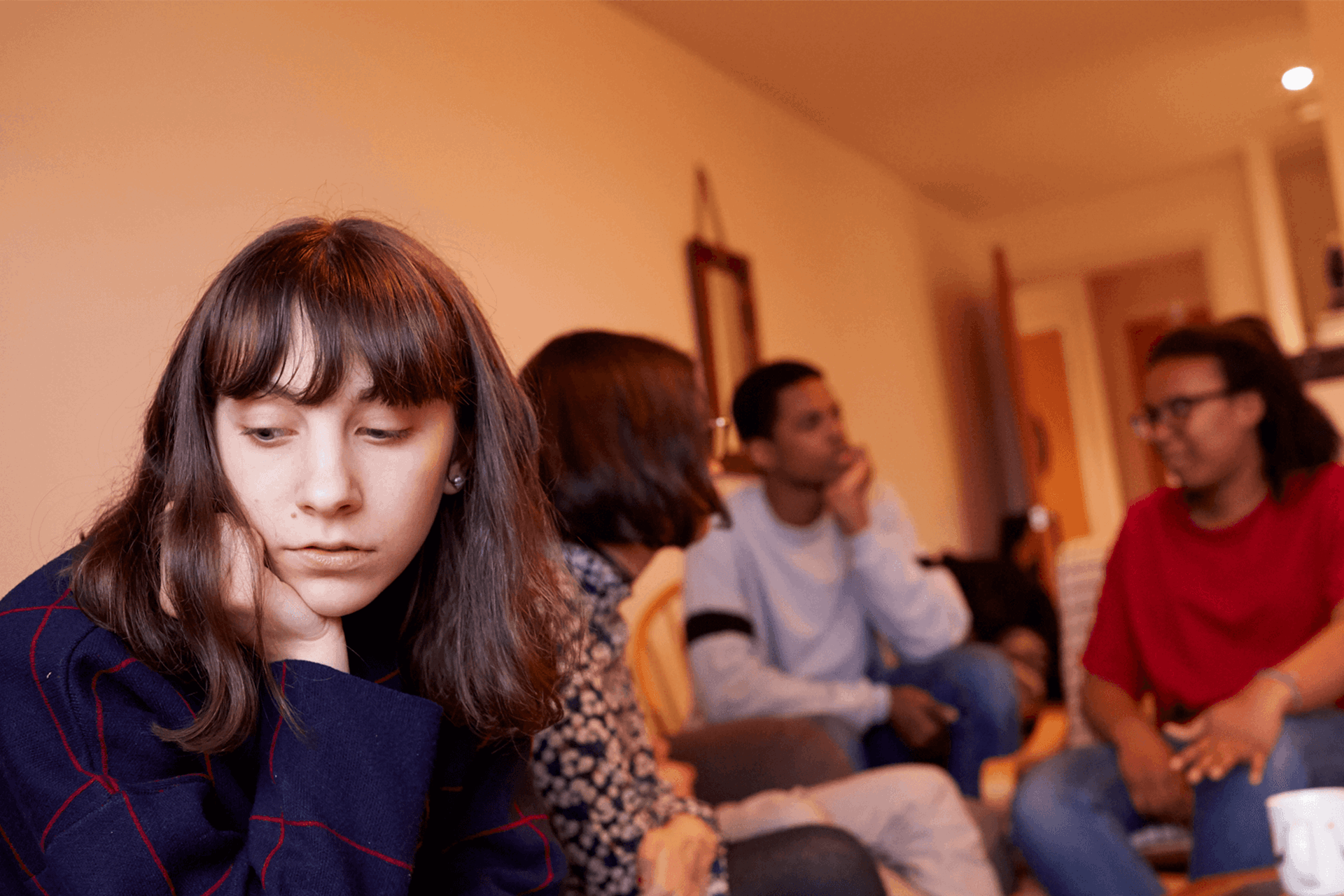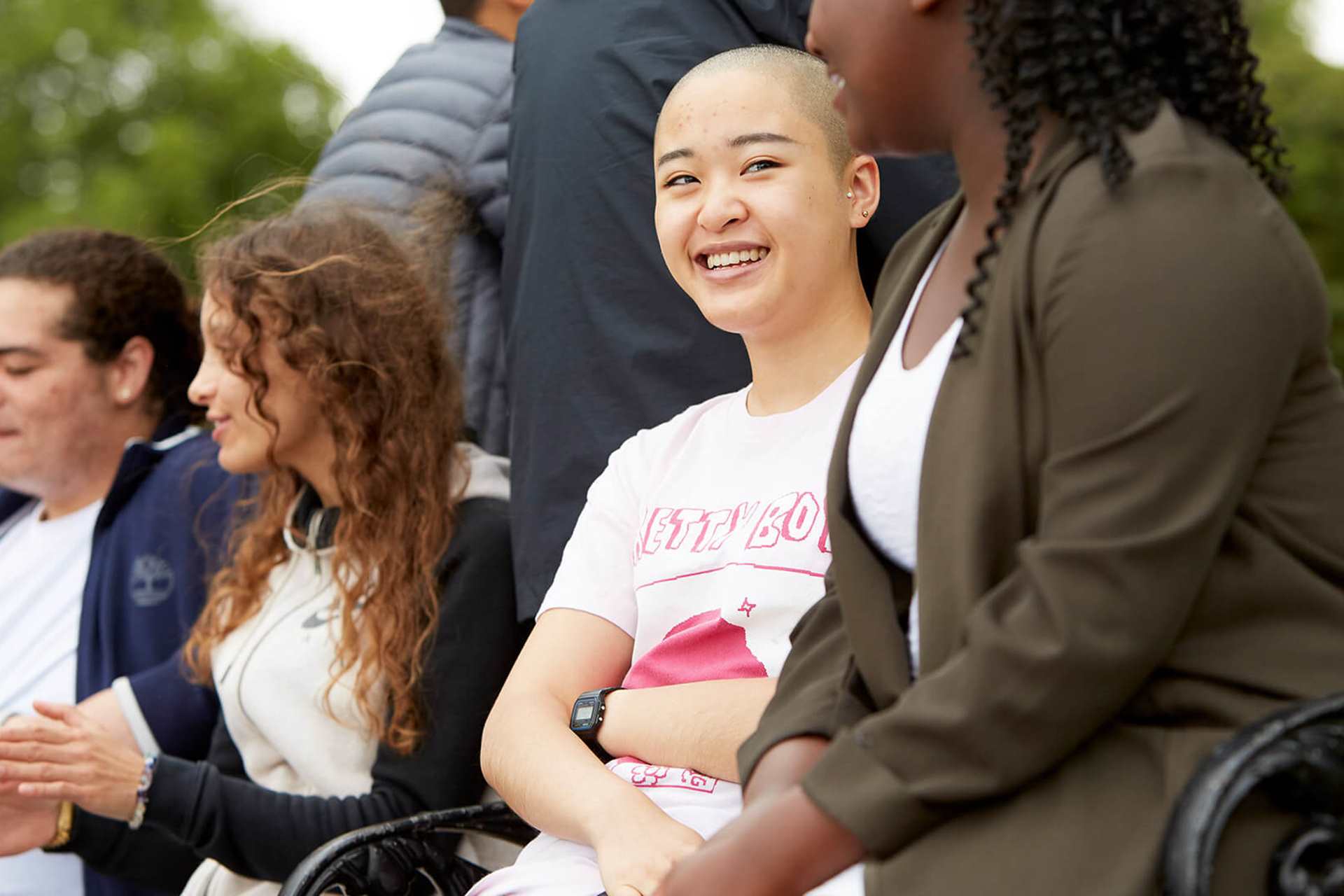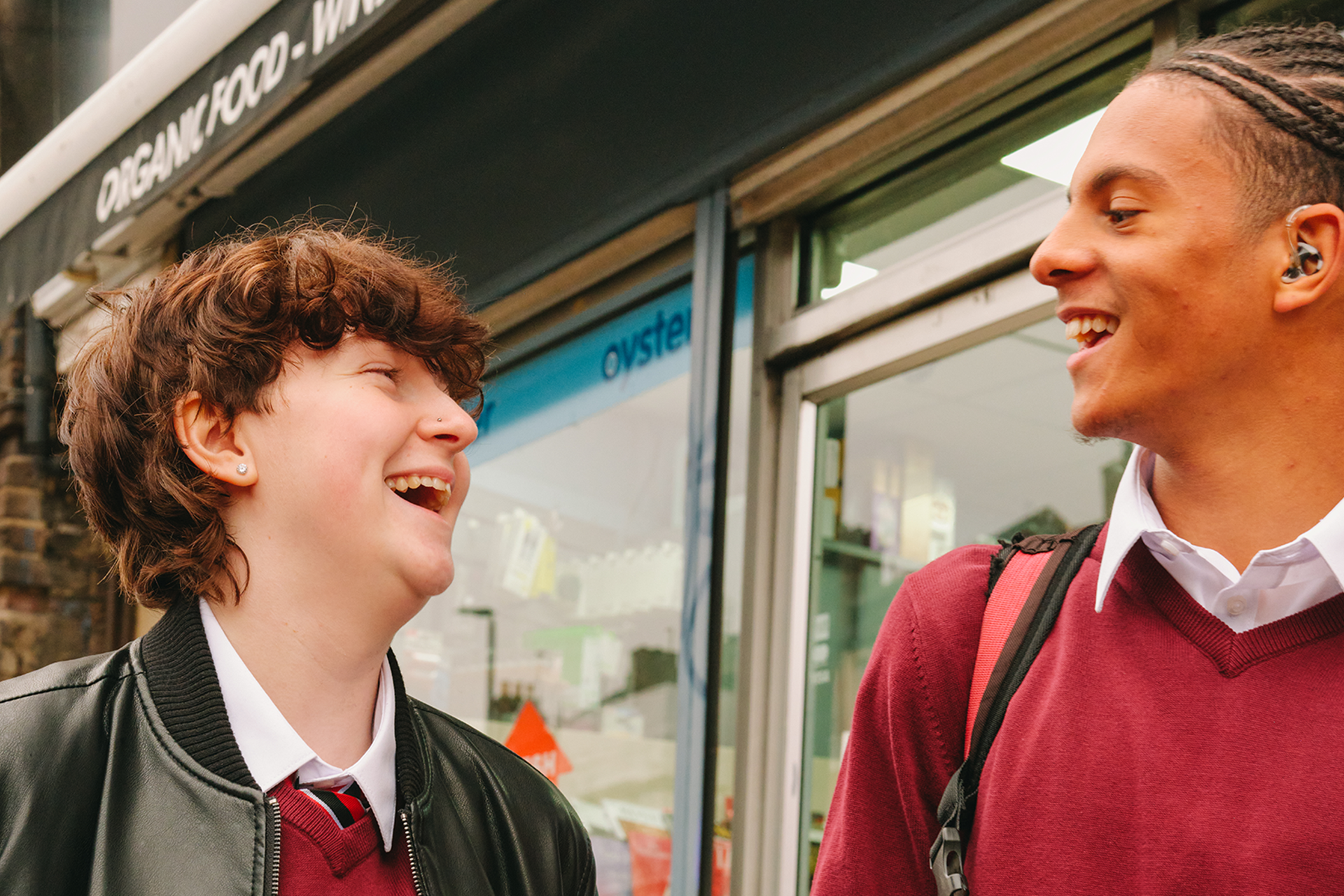Topics mentioned: disability and mental health, feeling alone, self-esteem
About: Lucas shares how being deaf affects his mental health, and how increased awareness of issues hearing-impaired people face would make all the difference.
My name is Lucas, I am 19 and I am partially deaf. I have moderate/severe hearing loss caused by a genetic condition called ehlers danlos syndrome. I want to tell you a bit about how being deaf affects my mental health.
Proud to be deaf
Firstly, I am very proud of being deaf. I have bright, colourful hearing aids and often wear charms, which can include superheroes and dinosaurs! I’m a trainee children’s nurse and I think it’s so important to show children you are proud of who you are, and that it’s okay to show it off.
Being deaf has not stopped me pursuing a career I love. I use specialist equipment like stethoscopes designed for hearing-impaired people, and make sure people are aware of my hearing. But being deaf has brought its challenges and has been a source of anxiety and caused me to get upset at times.
Being deaf has not stopped me pursuing a career I love.
Challenges I face as a deaf person
The world is a busy and loud place and communication has often been difficult. When you ask someone to repeat themselves more than once and they say, “Never mind,” it can make you feel socially isolated. It can also prove tricky to understand conversation in places like restaurants. It makes me feel I have to plan going out more than most people.
One of my passions is rugby. When I play, I wear a scrum cap so I can still wear my hearing aids. But during a game I really have to rely on my eyes. I have missed certain parts of play before and if it gets rainy or windy it proves an extra challenge. I have found myself tearful on the pitch due to this. But it hasn’t stopped me throwing myself into all aspects of play.
When you ask someone to repeat themselves more than once and they say, “Never mind,” it can make you feel socially isolated.
When I first started having hearing loss people my age couldn’t understand and that was a source of frustration. Hearing loss is often perceived as an older person’s problem, but it really isn’t. For me personally my hearing loss will get worse over time till I lose it all completely. I don’t know how long this will be, but I have lost a significant amount in one ear this year, which has made me upset, apprehensive and often very isolated.
The importance of awareness
The thing that could make a lot of this better? Awareness! Often what affects my mental health is not being deaf itself, but issues caused by a lack of awareness.
I often feel socially isolated when I struggle to access certain places or events like my friends can. This can be having no subtitled performances in the cinema, to not having adequate information written down when it is spoken. When people have awareness and knowledge of deaf people’s needs, it makes it so much easier to access the world around us, which is so important for our mental health.
Increasing awareness can be as simple as having more representation in the mainstream media. When I don’t see deafness being portrayed correctly or at all, I can feel isolated. Even small changes like this can make a big difference to people and their lives.
I am lucky to have a very understanding university, who have given me all the adjustments I need and helped raise awareness among my cohort of student nurses.
Often what affects my mental health is not being deaf itself, but issues caused by a lack of awareness.
My rugby team is one of the biggest sources of support in my life, especially when it comes to my hearing loss. They try their best to make sure I’m in the best position to hear and we have had conversations about how it’s best for people to communicate with me on the pitch. They also let me have a laugh about it.
Meeting other deaf people my age has proved a lifeline too; it is amazing to communicate with people who have gone through similar things, and this has been a real positive for my mental health.
How you can support a loved one who is hearing-impaired
If you have a friend or family member with hearing loss, make sure they feel included in everything no matter how they communicate. When you are talking to them, make sure you are facing them the whole time. It does not need to be a big thing though - be guided by the person, ask whether they want to talk about it or want your help.
For parents of children with hearing loss, places like the National Deaf Children’s Society give great support and advice, and offer a great place for young people to meet others in a similar position.
If you have a friend or family member with hearing loss, make sure they feel included in everything no matter how they communicate.
Being deaf isn’t easy and it has presented some challenges that have affected my mental health. But over time I have really embraced it and am trying my best to help raise awareness. Being deaf is part of who I am and I know that isn’t going to change. It definitely still affects my mental health, but there is so much support out there now and so many adjustments that can be put in place.
Being deaf hasn’t held me back; it makes me who I am.
More information and advice
We have tips and advice to help you find the support you need. Take a look at our guides.
Where to get help
However you're feeling, there are people who can help you if you are struggling. Here are some services that can support you.
-
Childline
If you’re under 19 you can confidentially call, chat online or email about any problem big or small.
Sign up for a free Childline locker (real name or email address not needed) to use their free 1-2-1 counsellor chat and email support service.
Can provide a BSL interpreter if you are deaf or hearing-impaired.
Hosts online message boards where you can share your experiences, have fun and get support from other young people in similar situations.
- Opening times:
- 24/7
-
Youth Access
Provides information about local counselling and advice services for young people aged 11-25.
Put in your location and what you need help with into their 'Find help' search, and see what services are available in your area.






